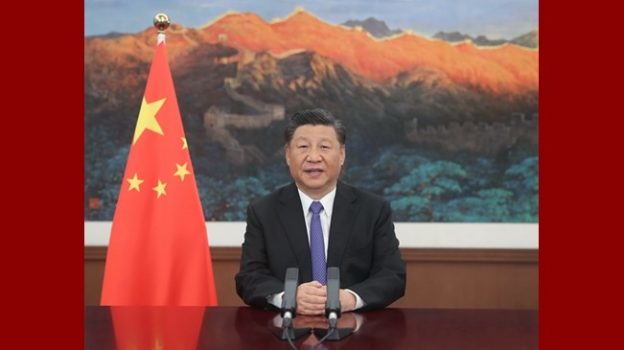This week marks the opening of the 20th Chinese Communist National Party Congress (NPC) which is held every five years. This is the second NPC since Xi Jinping came to power in 2012. He will once again occupy center stage when he is officially chosen to serve a third term as Party General Secretary. It won’t be all festivities for Xi, though, as the Chinese economy and the country’s foreign policy are facing serious obstacles. Some of those are due to poor decisions made by Xi himself.
Economic self-sufficiency emerged as a major policy objective under Xi. In recent years he has attempted to move China further away from its connections to the US economy with mixed results. Chinese domestic economic growth, while still ahead of the more mature western economies, must deal with an expanding middle class that is finding it harder to locate good paying jobs and housing. One recent report out of Washington said that “Beijing’s planners have also allowed a housing bubble to grow, which is at risk of bursting.” Xi must keep social unrest low to retain power.
China has become more integrated with the world economy under his leadership although in many ways it counters his own economic policy. To secure power over the last decade Xi purged rivals and created campaigns to reinforce loyalties both to the Party and to him. The 170-plus purges extended into the military strengthening Xi’s hold on the armed forces. He redefined traditional security threats to include any foreign military presence on China’s border, and “non-traditional threats, like public uproar on Weibo,” according to one analyst. Chinese national insecurity institutionalizes paranoia within the CCP and encourages local cadres to act with paranoia rather than pragmatism.
Taiwan policy remains another thorn in Xi’s side, one that he intends to remedy during his tenure in office. His approach to Taipei is more coercive than in past decades, with military analysts this week suggesting there will be an escalation of incidents with Taiwan in the coming months after the close of the NPC. According to one analyst, “Informed by the events in Hong Kong, Xi instead envisions a two-system solution for Taiwan, under which Taipei would be subordinate to Beijing and guaranteed no political or military freedoms.”
The NPC this week may address Xi’s lack of progress on Taiwan, among other challenges to his rule. The scale of Xi’s ambitions and his vision for a Chinese global-led order is greater than his understanding of the Chinese economy. His Covid policy has resulted in economic stagnation that is expected to negatively impact the domestic economy for a long time. High youth unemployment, the escalating cost of housing, and rising discontent across the country also may cause him to flounder in the coming years.
These challenges together raise the risk of confrontation with democratic states. James Palmer, writing in Foreign Policy, says that “There is no question of who is in charge, and it would be very unlikely for that to change after the 20th Party Congress. For the moment, it’s Xi forever, with his image plastered all over China’s daily propaganda. The question is who falls beneath him and whether they have any real power to push their own agendas, especially when it comes to fixing an increasingly shaky economy.” A South China Morning Post article this week claims that Xi Jinping has learned a key lesson from Putin’s failing war in Ukraine, “A strong country must have a strong army.” As China readies to hand Xi an unprecedented third term as General Party Secretary, the world may be witnessing a new opening salvo in Asian conflict that could reverberate in the West. The Financial Times says that “Ten years is always enough. Even a first-rate leader decays after that long in office. One with unchallengeable power tends to decay more quickly. Surrounded by people he has chosen and protective of the legacy he has created, the despot will become increasingly isolated and defensive, even paranoid.” With Xi’s partner in Moscow failing to win the war in Ukraine, and problems at home, Xi’s historic third term in office may prove more volatile than expected.
Daria Novak served in the U.S. State Department
